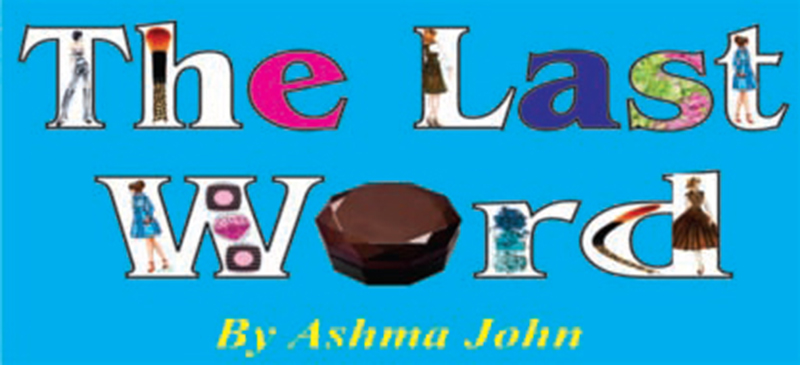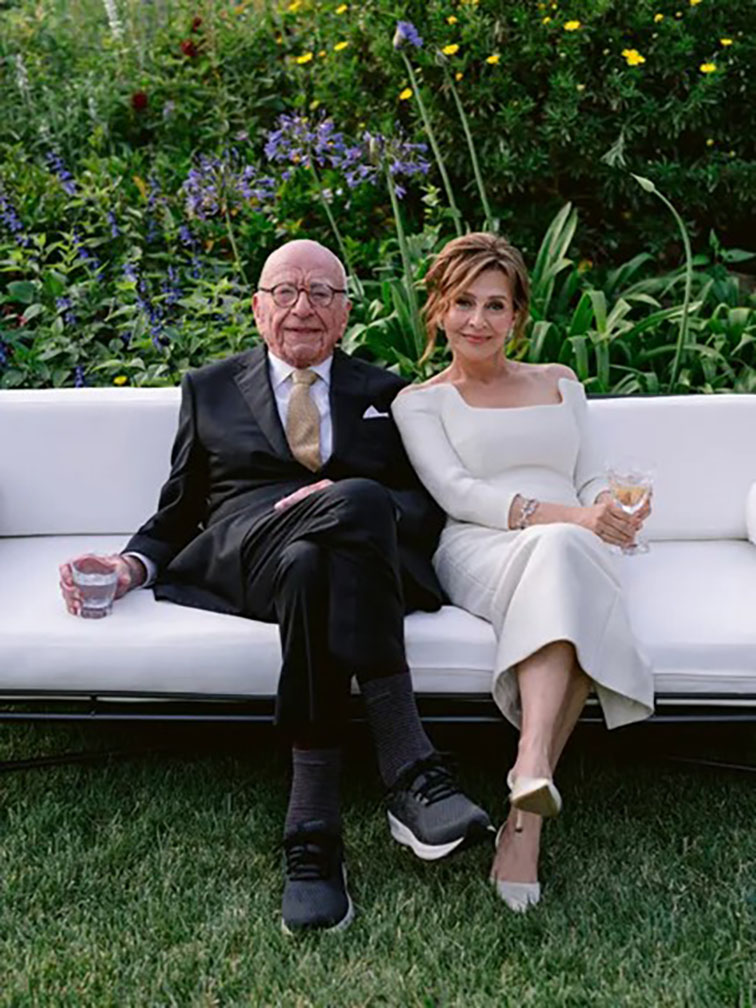 If I were 93 years old and on my fifth marriage, I too would probably rock sneakers to my wedding, I thought when I came across Rupert Murdoch’s latest wedding photos. As much as I dislike him and the power he commands over the media industry, the casualness was so appealing.
If I were 93 years old and on my fifth marriage, I too would probably rock sneakers to my wedding, I thought when I came across Rupert Murdoch’s latest wedding photos. As much as I dislike him and the power he commands over the media industry, the casualness was so appealing.
Possibly for health reasons, they were his choice, but juxtaposed with a suit where leather shoes have traditionally been the choice, the sneakers further obscured the lines of wedding expectations and tradition. His choices aside, there is no denying that wedding expectations have both evolved and ruptured since COVID; mini weddings and minimalist trends have reigned supreme.
I personally don’t find the actual wedding day to be the most important day in any person’s life. A memorable one, yes, but not the most important even though we have all been heavily socialised to see it as such. And not because divorce is possible for anyone, or bringing life into this world is a miraculous occasion that seems to unlock a new dimension of happiness, but because we override so many other big emotional moments where we birth new versions of ourselves without the photographer or friends around to bear witness. These moments change and mould us in ways that partnerships can never really even with all the might of love they offer.
With the global wedding industry set to be valued at a staggering $414 billion by 2030, most of the products marketed through vendors feed off of a false allure that they will somehow guarantee us some tangible marital bliss. They are so buried into this fairy tale illusion that we have carefully constructed that has been further manipulated by the immediate trend culture fuelled by algorithms and our human desire to one up whatever has been done before.
I mean how else are we to explain that bridesmaids are now being proposed to accept the role? Yes, you read that right. There are now mini boxes with trinkets, candles, cards to ask ‘will you be my bridesmaid?’ of alleged long-term friends.
We can all acknowledge that historically, weddings, particularly for aristocrats, were about furthering and expanding political and social power. Their ability to enforce social divisions was also not lost on us as crossing faiths, caste etc were not as popular as they are today. So understandably, weddings have evolved into this finale to show your friends and family how you wish to be perceived by them whilst being strongly influenced by trends set in place by those holding more social and economical capital.
This phenomenon could possibly explain why we are also so fascinated with dissecting weddings in general because somewhere in that multi-billion-dollar industry, we, too, as participants, contribute whether we take on the role as guest or groomsman. And somewhere within that dissection we are measuring it against our own tastes and social standing.
One of the best weddings I have been to was one that really mirrored the couple’s taste and where it was so evident that it was about them and who they were as people. Somewhere between the playlist that they themselves designed that we danced to into early hours of the morning, the gluten-free wedding cake (my friend is a nutritionist) and the gift boxes her mom hand painted, it felt so intimate and not lost in the hysteria of all the things that we believe that will determine the moment.
Maybe this isn’t Murdoch’s last wedding rodeo and maybe we will never stop interrogating weddings in general but one thing is for certain, 50 years from now the shoes will never have the same effect as the moments did.










